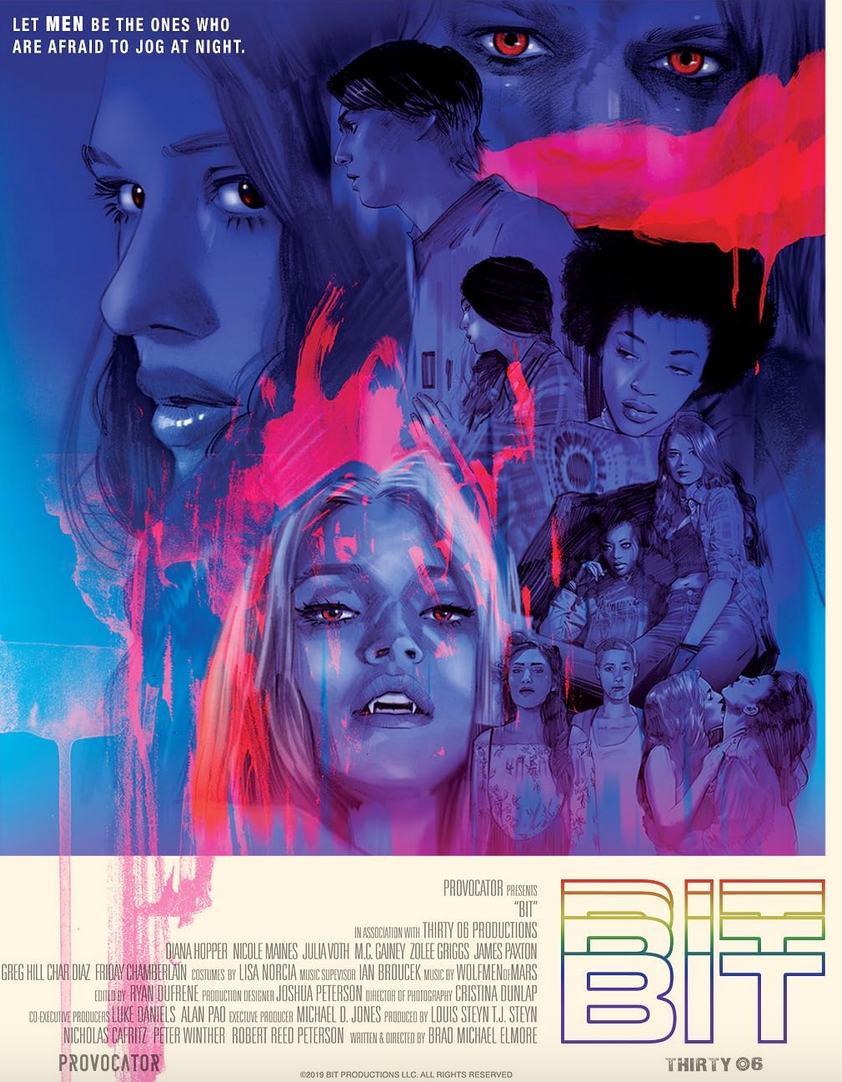
Horror has long been a genre that explores the “other” and challenges societal norms.
Queer characters, often portrayed through a heteronormative lens, have historically been relegated to tropes like the villainous psychopath or the ill-fated victim.
However, we are beginning to see more iconic queer characters subverting these stereotypes and adding nuanced depth to horror.
Challenging the “Bury Your Gays” Trope
The “bury your gays” trope, where queer characters are disproportionately killed off, has been a persistent issue in horror.
But films like Bit (2019), written and directed by Brad Michael Elmore challenge this narrative. The film follows a transgender teen who becomes a vampire and embraces her newfound power. She defies the expectation of queer characters meeting an untimely demise.
Similarly, in the Fear Street trilogy (2021), based on R.L. Stine’s books, the central queer relationship between Deena and Sam, played by Kiana Madeira and Olivia Scott Welch, respectively, drives the narrative and survives the horror. It subverts the “bury your gays” trope.
Reclaiming Queer Horror from the Villainous Lens
Additionally, queer characters have often been portrayed as villains or psychopaths, perpetuating harmful stereotypes. However, films like Titane (2021), written and directed by Julia Ducournau, a French woman filmmaker, challenge this trope. The film’s lead character, Alexia, played by Agathe Rousselle, is a gender-nonconforming individual whose violent actions are not rooted in their queerness but rather in their traumatic past.
In A Nightmare on Elm Street 2: Freddy’s Revenge (1985), the queer subtext surrounding Jesse, played by Mark Patton, a queer actor, was initially unintentional. However, Patton has since embraced the film’s status as a queer cult classic, reclaiming the narrative and challenging the villainization of queer characters.
Centring Queer POC Perspectives
While queer representation in horror has often been through a white lens, films like The Retreat (2021), written and directed by Pat Mills, centre queer POC perspectives. The film follows a lesbian couple, played by Brittany Snow and DeWanda Wise, who are hunted by homophobic extremists, exploring the intersections of queerness, race, and violence.
Similarly, in Urban Massacre (2002), directed by Darnell Martin, the main characters are racial minorities, challenging the whitewashing of horror and providing a fresh perspective on the genre.
Final Thoughts
As the horror genre continues to evolve, iconic queer characters written and portrayed by queer people of colour and women are challenging stereotypes and adding depth to the narratives.
By subverting tropes like the “bury your gays” and the villainous psychopath, and centring queer POC perspectives, these characters are reclaiming the genre and providing nuanced representations that resonate with diverse audiences.